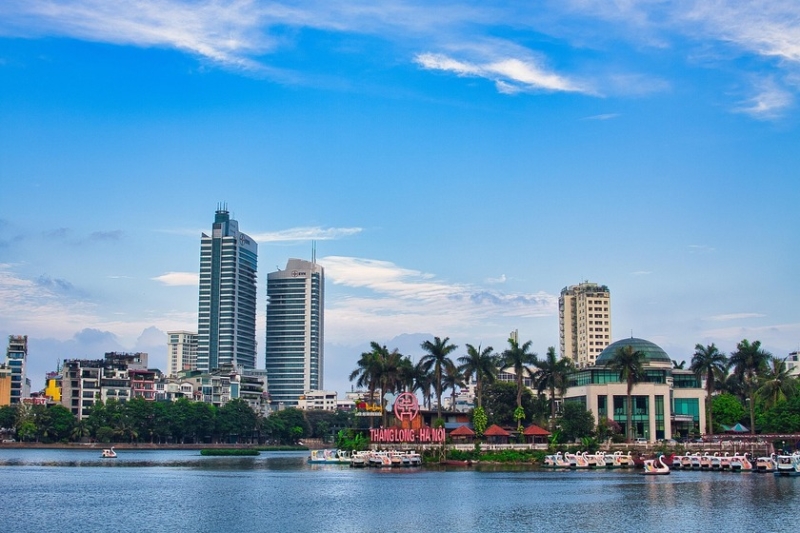A vacation in Vietnam impresses with the fact that it does not require large expenses – with a competent approach, a trip is much cheaper than a similar vacation in Thailand or the UAE. But before traveling, it’s important to figure out what to do with the money. What amount should be, in what form (in cash or by card), and in general, what currency should I take to Vietnam in order not to stress on the spot? Let’s analyze it sequentially.

A bit of history to understand what we’re dealing with
Local money is called dongi. The name is short, but the numbers are the opposite: Vietnamese banknotes are full of zeros. For example, they can ask for 40,000 VND for a cup of coffee, and 120,000 VND for dinner in a cafe.
For those who are traveling to the country for the first time and are interested in what currency is in Vietnam, we inform you that only dong is used. No dollars, tenge or yuan are taken into account, even if it is a hotel in the center of Ho Chi Minh City. Therefore, exchange is a necessity, not a desire.
1,000,000 VND is approximately 17,000 18,000KZT (the exchange rate may vary slightly). Because of the many zeros on the bills, you need to be especially careful when paying: at first it’s easy to confuse, say, 50,000 and 500,000 VND.
Money, exchange rate and where to change – we’re talking business
Now about the main thing: what kind of money in Vietnam is really going to change. It is best to bring US dollars with you. They are easily exchanged in official banks or trusted exchangers. The main thing is that the bills must be new, without inscriptions and creases. Euros are less common in circulation and are not always profitable at the exchange rate. Unfortunately, Vietnamese exchange offices do not accept Kazakhstani tenge at all.
Make an approximate budget before your trip. If you plan to live in a 3-4* hotel, eat in a cafe, go on excursions and shop, expect from 60 to 100 USD per day per person. For a more modest format, 30-40 USD is enough. But keep in mind: the Vietnamese market is treacherous – I want to try everything at once, so the money melts imperceptibly.

The actual question is where to change the currency in Vietnam, so as not to get into a mess. It is best in large banks such as Vietcombank, BIDV, Techcombank. There is a stable exchange rate, they give you a check and a minimum of risks. There are also private exchange offices in tourist areas, but the exchange rate may be lower there, and sometimes the fees may vary depending on the mood.
You can also exchange money at the airport, but you should limit yourself to a small amount for a taxi and a first dinner. Here, the rate is usually underestimated.
Separately, about Nha Trang – a city where Kazakhstanis are at home
For many of our tourists, Vietnam is primarily Nha Trang. A popular, warm and almost native resort. Therefore, travel managers are often asked about currency exchange in Nha Trang – where, when and on what terms.
There are many exchange points in the tourist center of the city. If you do not chase after every 1000 dong, then you can safely change the currency directly at the hotel or at tourist exchangers. The main thing is to avoid street “profitable offers”. It’s better to pay a little too much than to be left without money at all.

Some tips: “tourists” to tourists
Here are some important life hacks regarding money transactions for guests of Vietnamese resorts:
- Cards don’t work everywhere. Although there is a growing number of places in Vietnam where bank cards are accepted, small shops, cafes and street outlets often operate only for cash.
- Always recalculate the money when exchanging, especially at unofficial locations. Sometimes they may miss a bill or “make a mistake” with the face value.
- Study the course in advance. Keep an eye on the current VND to dollar exchange rate before departure and use it when exchanging. Online applications can help assess the integrity of a course in a particular location.
- Keep money in different places. Especially if you are traveling for a long time – part in a bag, part in a belt or a hotel safe.
- Keep expense records, especially if the budget is limited. Vietnam is an inexpensive country, but it’s easier to spend a lot.
- If you plan to visit only a resort area, such as Nha Trang, you can check in advance with a travel agency where it is safest to change money – often local guides from travel agencies have proven exchange offices with a good rate.
So, a tourist from Kazakhstan will be comfortable in Vietnam if you understand the currency issues in advance and protect yourself from unnecessary expenses and misunderstandings. And then there’s just rest, delicious food, massage, bike rides, the sea and the sun. Everything you need for a great reboot.

